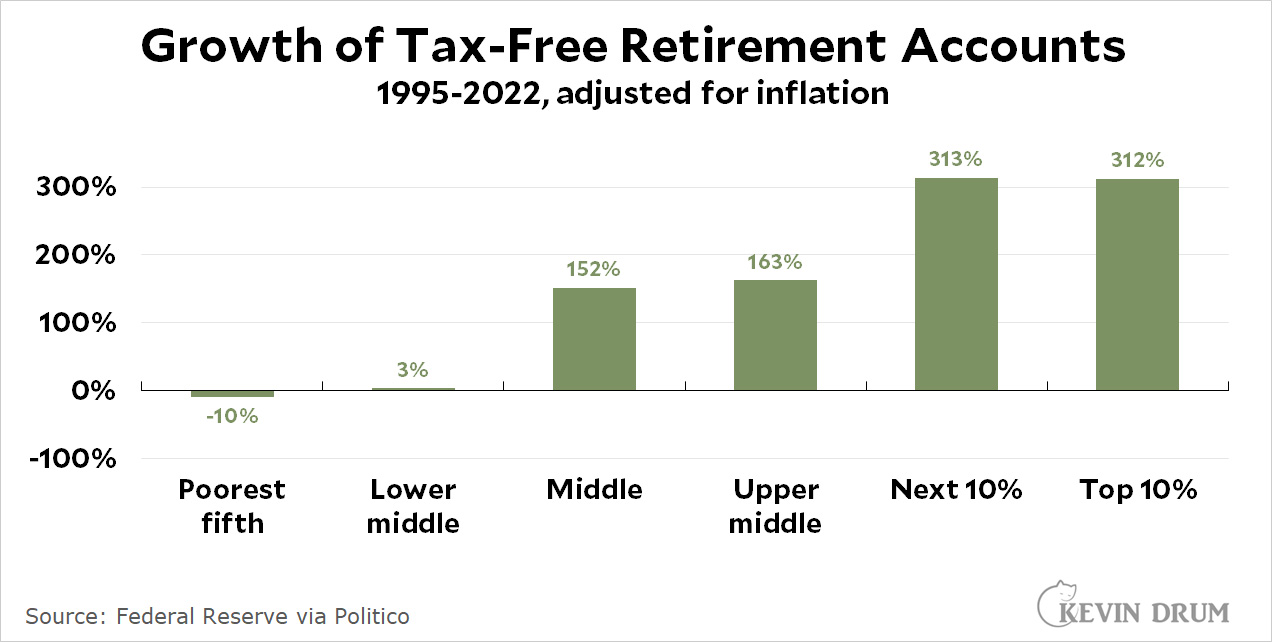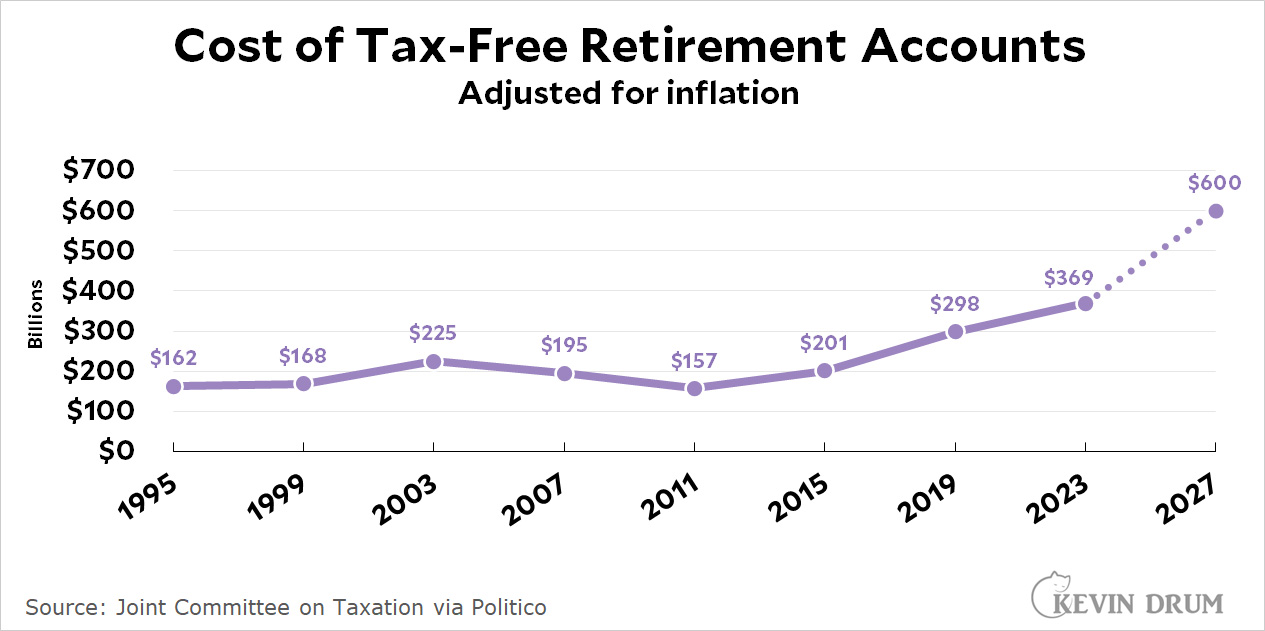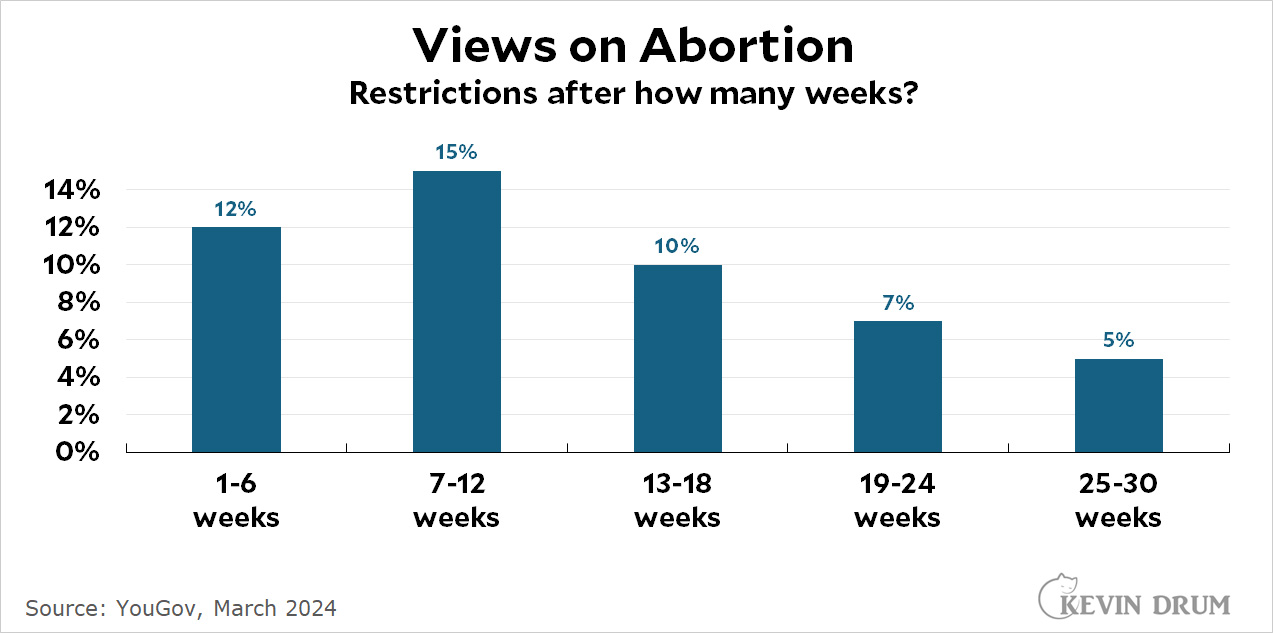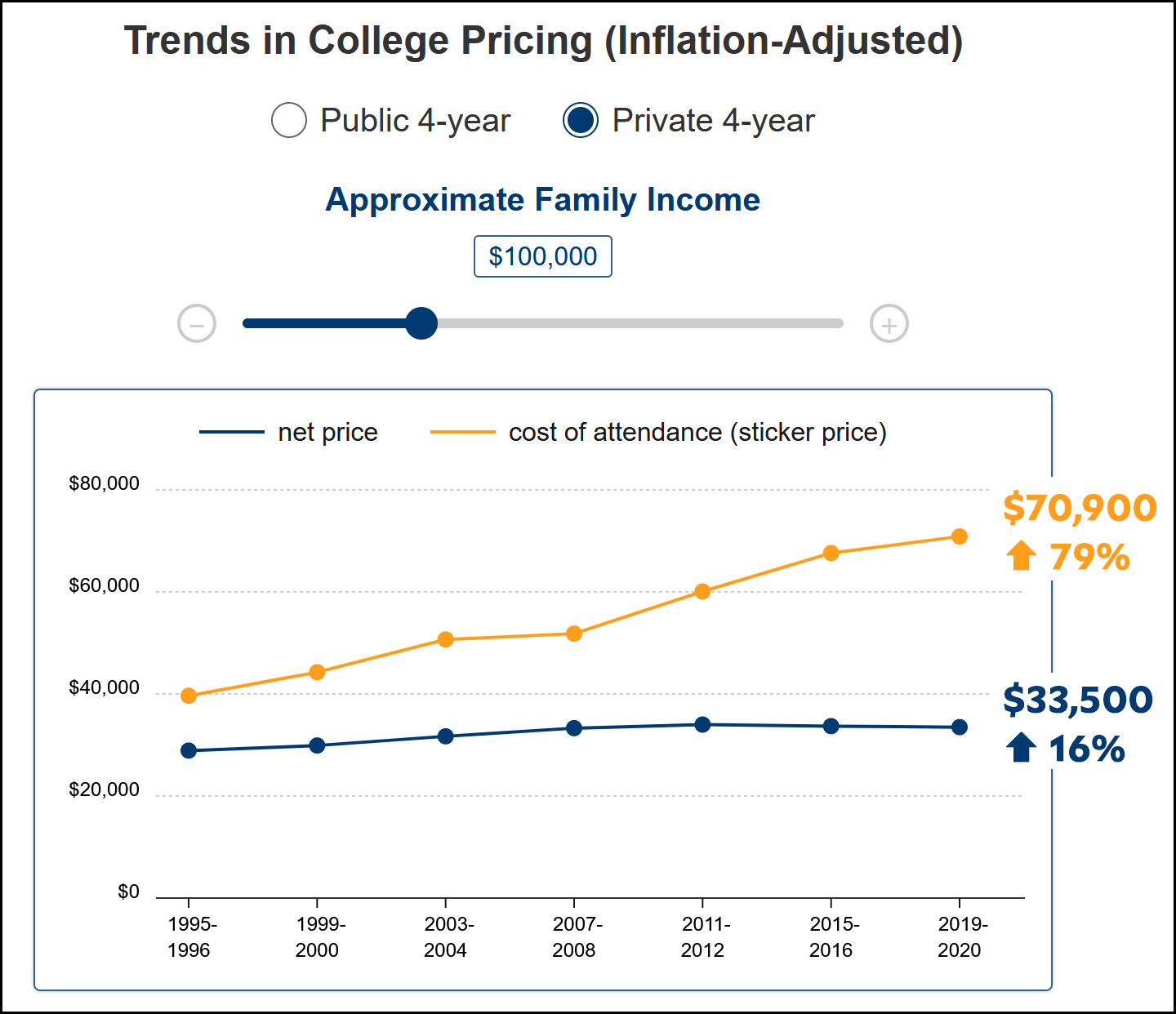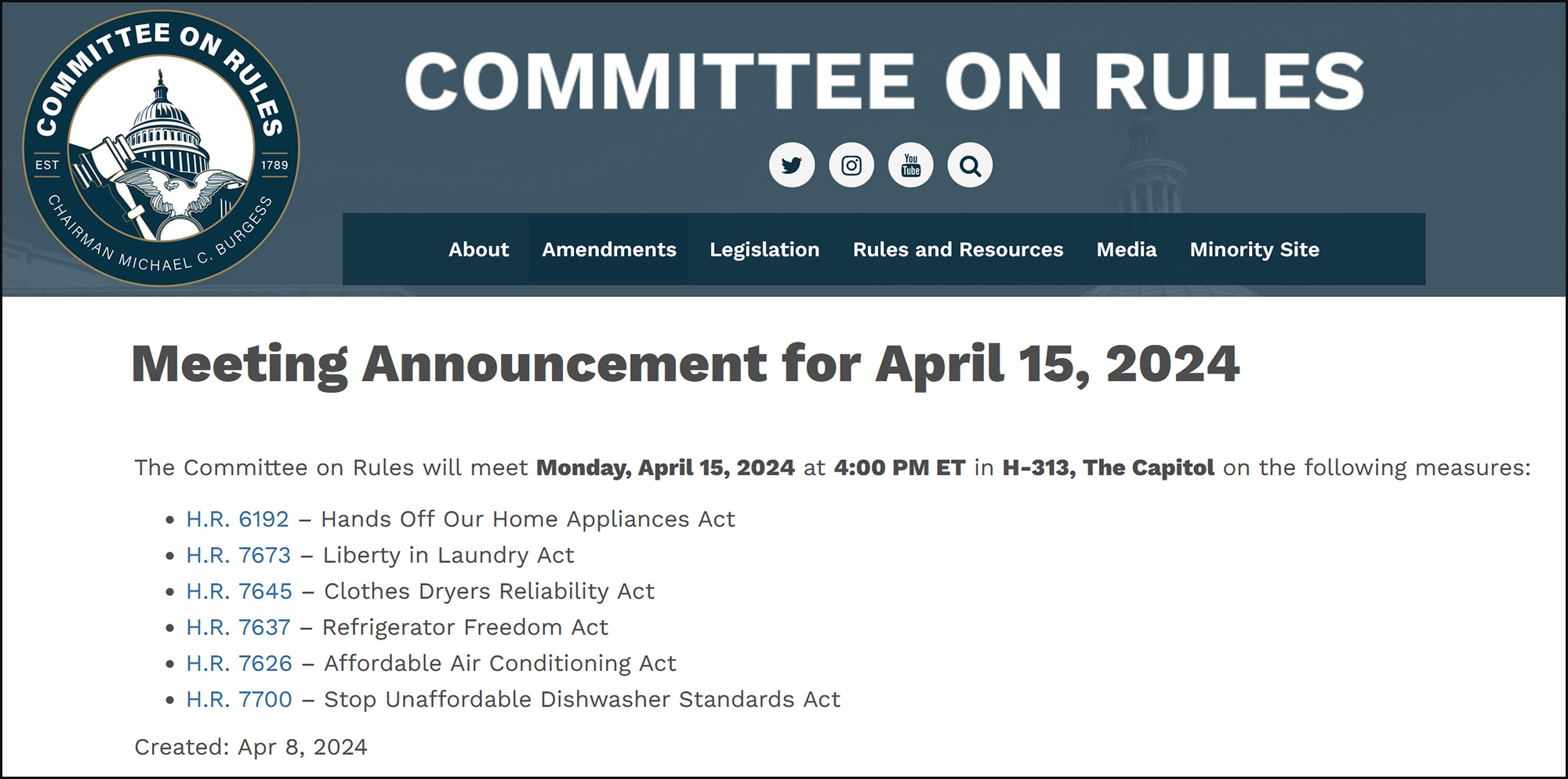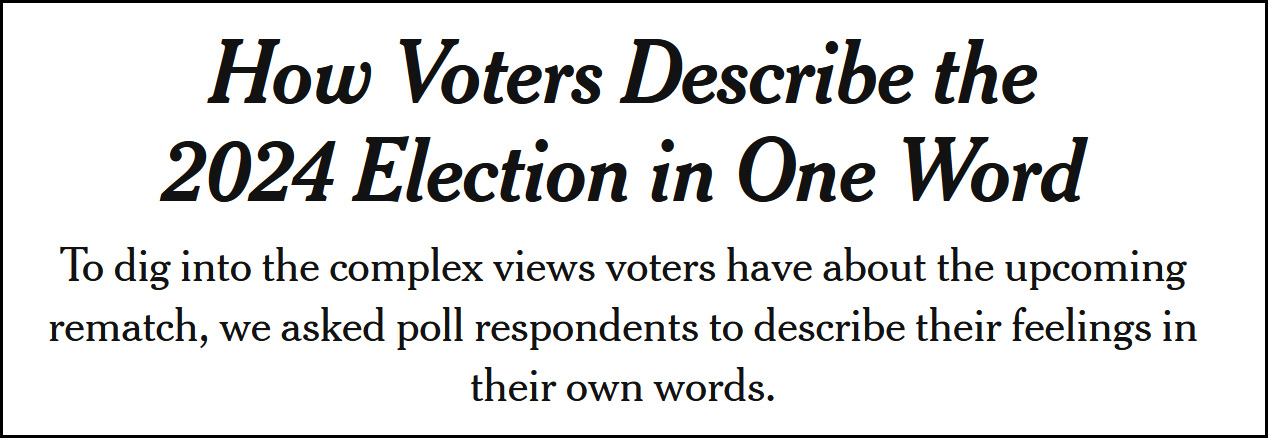How much humanitarian aid is getting into Gaza? There are two sources for this: Israel itself (via COGAT) and the UN (via OCHA). Here's what they report recently:
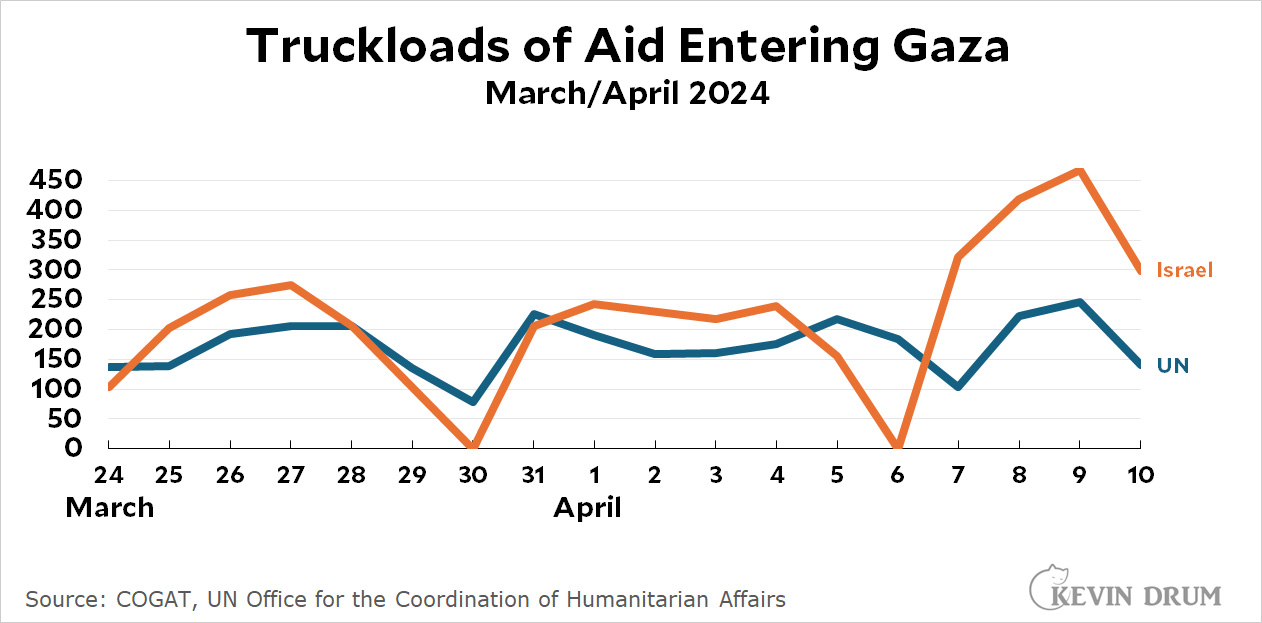 Up through April 6 both sides mostly agree. Israel reports an average of 190 trucks per day while the UN reports an average of 170.
Up through April 6 both sides mostly agree. Israel reports an average of 190 trucks per day while the UN reports an average of 170.
But after April 6 they wildly diverge. Israel claims that shipments have surged nearly 100%. The UN says they've gone up 4%.
What accounts for this? For one thing, the two sides count trucks differently. Israel counts trucks entering Gaza. Once there, the trucks unload everything and their pallets are then loaded onto Palestinian trucks. The UN counts the number of trucks that leave the loading area.
This should still be about the same, but the UN says that many of the entering trucks are only half full. When they're reloaded inside Gaza workers fill the trucks completely, which explains why they see fewer trucks leaving than Israel sees entering.
But that should have produced a steady difference, not a sudden change on April 6. Something else is at work here. But what?
Israel has loudly and persistently claimed that there is "no limit" to the amount of aid they allow into Gaza. The problem is distributing it. They say the UN is unable to distribute all the food and other types of aid that enter Gaza. In fact, Israel claims that more food enters Gaza now than before the war:
The UN says the "no limit" claim is true only in a hypertechnical sense. In reality, shipments are held up by: (a) onerous inspections, (b) a small number of entry points, (c) limited hours of operation, (d) slow approval of visas for aid workers, and (e) regular attacks on aid convoys, which naturally makes it hard to recruit workers.
There's no way to arbitrate these claims from 8,000 miles away. However, we do know that if plenty of food is getting in but it's not being distributed, warehouses in Gaza would be bursting at the seams by now. They don't seem to be. Beyond that, it's flatly inconceivable that twice as much food is being delivered as before the war. I'm not sure what games are being played here, but the UN seems to have the better of the argument.
 Since the start of 2023, the price of food has increased 1.2%. Average earnings have gone up 4.3%.
Since the start of 2023, the price of food has increased 1.2%. Average earnings have gone up 4.3%.

